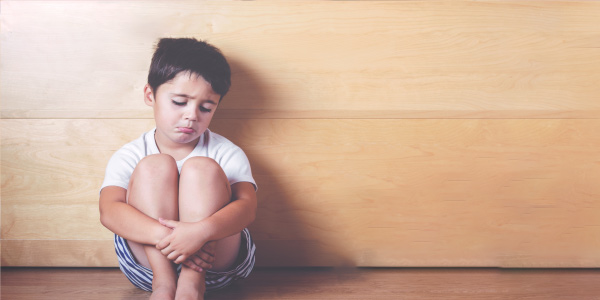My child holds his breath for a long time and turns blue. Its really scary? What is this called?
According to your description, your child seems to be having breath holding episodes.
In a typical breath holding episode, the child will typically cry vigorously, but for less than 15 seconds. Then the child becomes silent, stops breathing, and rapidly turns blue. Child may turn blue or purple during the spell. The child may pass out for a few seconds and rarely, a seizure (fit/ convulsion) may accompany the spell. Some children may also turn abnormally pale while they are unconscious.
What can be the triggers?
Emotional reasons are the triggers. They can be triggered by pain, fear or the child becoming upset.
Does my child do it intentionally?
Though the name makes it seems so, breath holding spells aren’t intentional — they’re an involuntary reflex, which means kids have no control over them. Although they appear dangerous to watch, breath-holding spells aren’t harmful and pose no serious health risks. A spell typically lasts less than a minute before a child starts breathing normally again.
Why do they occur?
The exact cause of breath holding spells is not known. Even though some breath-holding spells are triggered by the child becoming angry, this does not mean breath-holding spells represent a behavior problem. The emotional upset triggers a reflexive response in the child which changes breathing, heart rate, and blood pressure causing the child to loose consciousness. Anemia, or a low blood count, may cause a child who has breath-holding spells to have more frequent episodes, but anemia is not the cause for the episodes. Most children with breath-holding spells are otherwise healthy. Genetic factors seem to play a role in a child having breath-holding spells.
What should I do when my child is having an episode?
If your child has a blue breath-holding spell:
- Stay calm – it should pass in less than a minute
- Lie them on their side – don’t pick them up
- Observe them till the episode ends
- Ensure that they don’t hurt themselves
- Avoid putting anything in their mouth – including your fingers
- Avoid splashing water
- Avoid mouth-to-mouth resuscitation
You don’t need to try to help your child breathe .They will start breathing on their own once the episode ends. Act as if nothing has happened and avoid making a fuss – don’t punish or reward them.
At what age does it begin? Is it a life long condition?
Breath-holding spells can happen in healthy children between 6 months and 6 years old, but are most common during the second year of life. Kids usually outgrow them by age 5 or 6. It is not a life long condition.
What is the treatment and how do we prevent them?
Most children don’t need treatment for breath-holding spells. Spells will go away as the child gets older. Once kids mature and develop better coping skills, they usually outgrow breath-holding spells. With experience, courage, and your doctor’s help, you can learn to cope with breath-holding spells while providing a safe and structured environment until your child outgrows them.
The episodes are not behavioral, but if the child learns that when he starts crying he gets his way, he may develop behavior problems. If excessive attention is given to the child after a breath-holding spell, it may reinforce the behaviors that led to the episode.
Working with a professional therapist or counselor may help with learning correct and effective parenting techniques.
Any test needed for my baby?
Usually no tests are required for this condition. If the doctor suspects other conditions like a seizure or iron deficiency anemia, he may ask for tests like EEG/ blood test. This is however, not required in all cases.
Should I take my baby to a doctor when he develops breath holding spell?
Not usually required unless in rare case where the child does not resume breathing or is unconscious.
Will it affect the growth of his brain?
Breath holding spells are usually harmless and self limiting. Evidence suggests no serious long-term effects of benign breath-holding episodes in otherwise healthy children; these kids do not have increased risk of epilepsy or other neurological problems or effects on growth of the brain.

